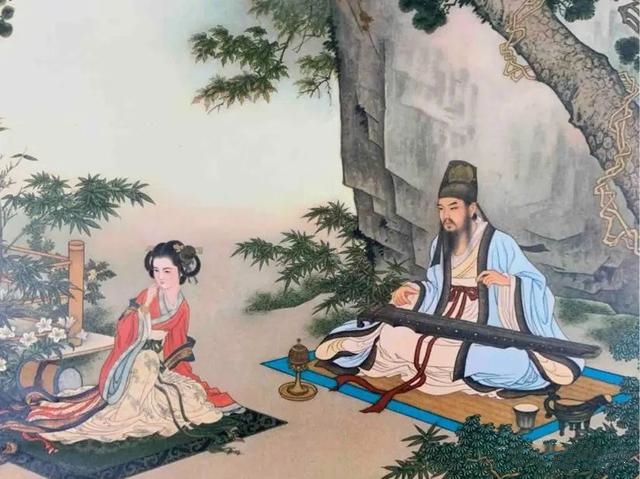Guqin celebrity anecdotes: Cai Wenji, can distinguish sounds
"At the beginning of human beings, their natures are inherently good. Their natures are similar, but their habits are far away...." Everyone is familiar with this well-known Chinese study "Three Character Classic", right? Among them, "Cai Wenji, can recognize the violin. Xie Daoyun, can sing. That woman is smart. Er man, you should be on your own." I don't know if you have any impressions of this paragraph?
in feudal society
Women have no status. People think that "a woman's lack of talent is a virtue". It is very difficult for a girl to study and learn art. Cai Wenji and Xie Daoyun are both women. You can imagine how difficult it was for them to break the routine and study hard at that time. what. Of course, the growth of the two of them is also inseparable from the influence of the family environment. If there is no education and training from the elders in the family, they will not be called "the world's talented women".
It's useless to talk too much. Today, I will share the story of "Cai Wenji, can distinguish sounds" in detail.

Wen Ji discriminates the qin
Cai Wenji is the daughter of Cai Yong, a famous scholar in the Eastern Han Dynasty, and has been a famous goddess child since childhood. Cai Yong, a friend and teacher of Cao Cao, was a well-known university enquirer. Such a family environment gave Xiao Wenji a good learning atmosphere.
She has shown extraordinary talent since she was a child. She never forgets the books she has read. She speaks the truths of the books well, and often has her own unique opinions. She is also very proficient in music.
At the age of ten, Cai Wenji showed great talent in music. She could tell which string was played just by listening to the sound.
Once, when Cai Yong was playing the piano in the yard, he was fascinated by it when one of the strings suddenly broke. Xiao Wenji, who was reading in the room, immediately said loudly, "Father, you broke the second string!"
Cai Yong was very surprised. He didn't expect his daughter to be so smart, so he got it right. So he deliberately broke the fourth string again, and then asked with a smile: "Daughter, guess, is it the third string or the fourth string this time?"
Xiao Wenji was amused in the room and said, "Father, don't test me, it's the fourth one! Am I right?" Cai Yong was convinced.
From this day on, Cai Yong began to teach his daughter how to play the piano. Although Xiao Wenji's talent is extremely high, people say that she will definitely become an excellent musician, but Xiao Wenji has high requirements for herself, and she does not relax at all, even more than those children with average talent assiduously.
In the morning, before the sun came out, she was sitting upright in the study, reviewing the tunes she had learned yesterday; in the evening, when her father went to rest, she was still practicing fingering in the study, pondering every syllable, hoping to play it out. better music.
Two years later, Xiao Wenji's piano skills have become outstanding. Her father tested her by making her play a difficult tune. After listening to the tune played by his daughter, Cai Yong was very satisfied and rewarded her with his most cherished Jiaoweiqin. In addition to praise, Cai Yong also told Xiao Wenji that although she has done a very good job, she should continue to work hard and cannot be satisfied with the small achievements in front of her. Xiao Wenji nodded seriously.
With such a hard-working spirit, by the age of fourteen, Cai Wenji's talent was already known to everyone. She is proficient in music and calligraphy, can write poetry, also knows a lot of etiquette, and her eloquence is also very good. She was a very famous talented woman at that time.
 渝公网安备 50010702504639号
渝公网安备 50010702504639号